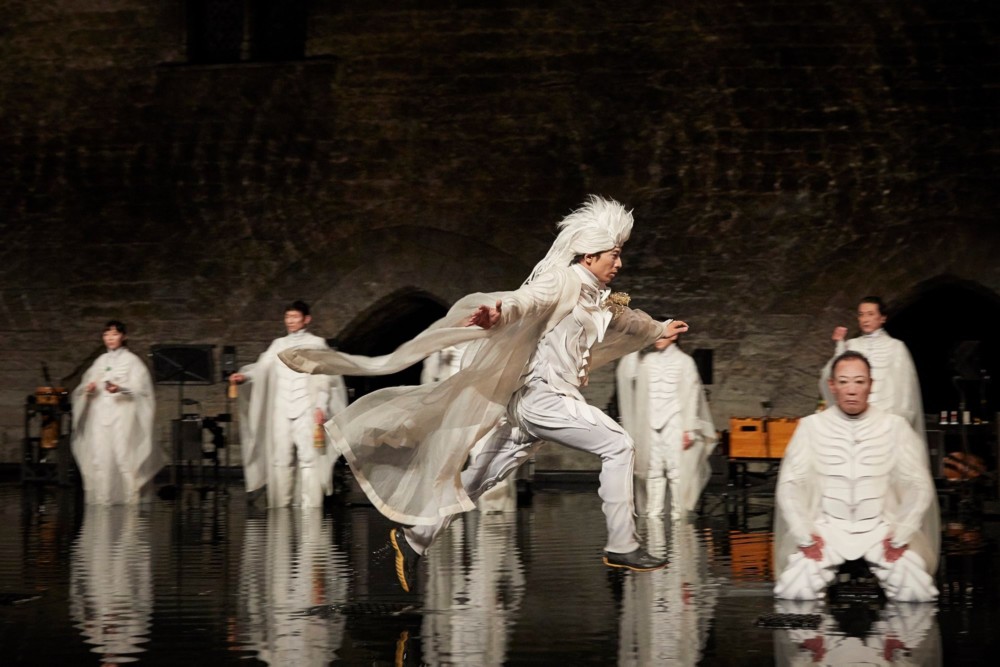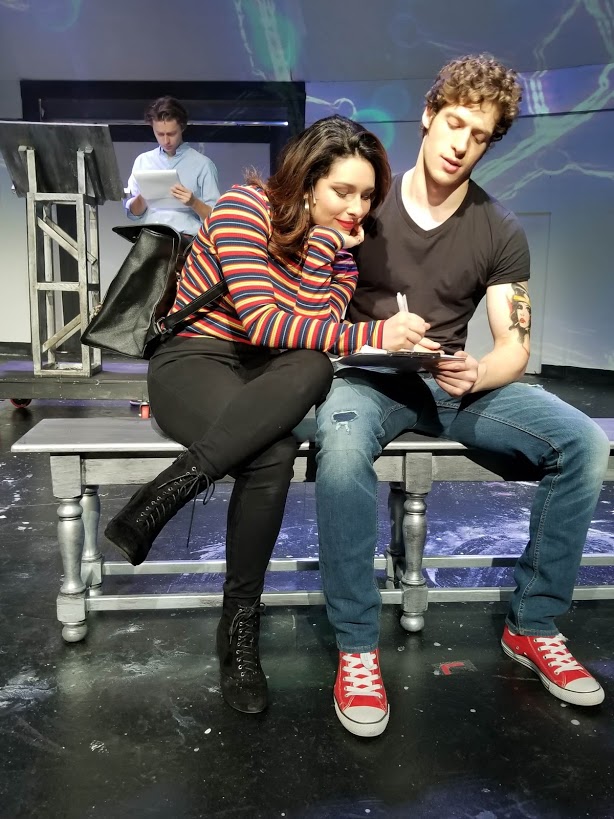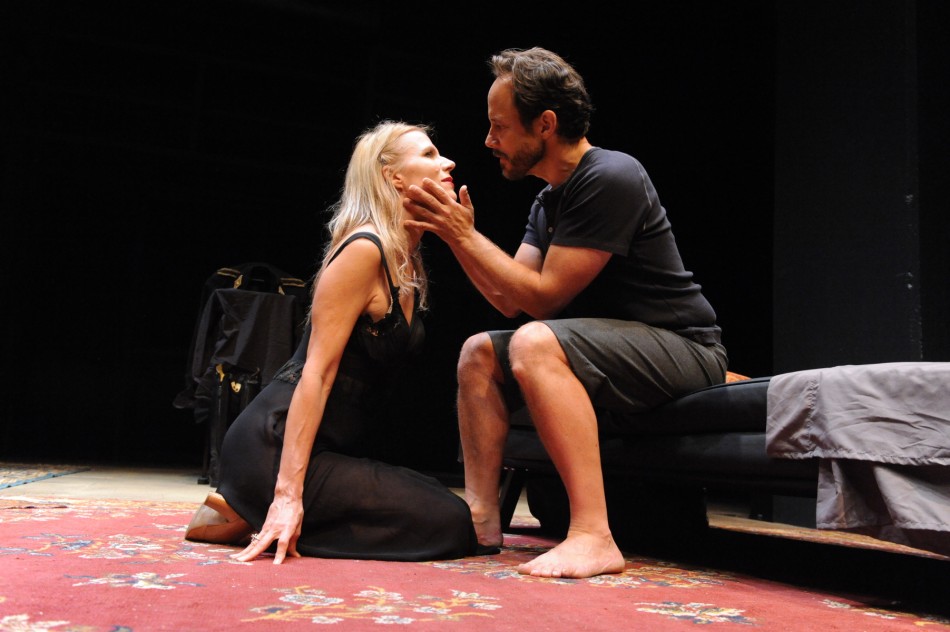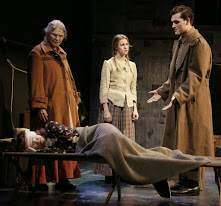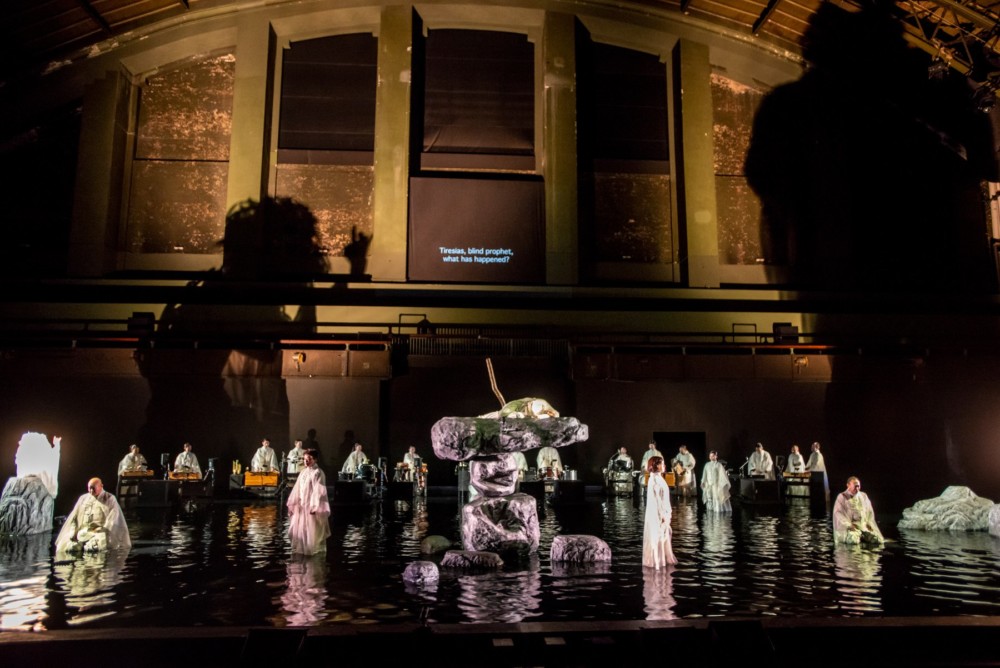
By JK Clarke
Theatrical productions at the Park Avenue Armory are notoriously high-falutin—extravagant, intellectual, elaborately produced, and almost always of unparalleled quality. Tickets are difficult to come by, even for reviewers such as myself, and the productions are the see-and-be-seen events of the year. So, I count myself lucky for having witnessed the extraordinary spectacle that was their recent production of Antigone, the North American premiere of Japan’s Shizuoka Performing Arts Center in collaboration with The Japan Foundation. My only regret is that more people didn’t have the opportunity to see this elegant, mystical, original and utterly breathtaking performance.
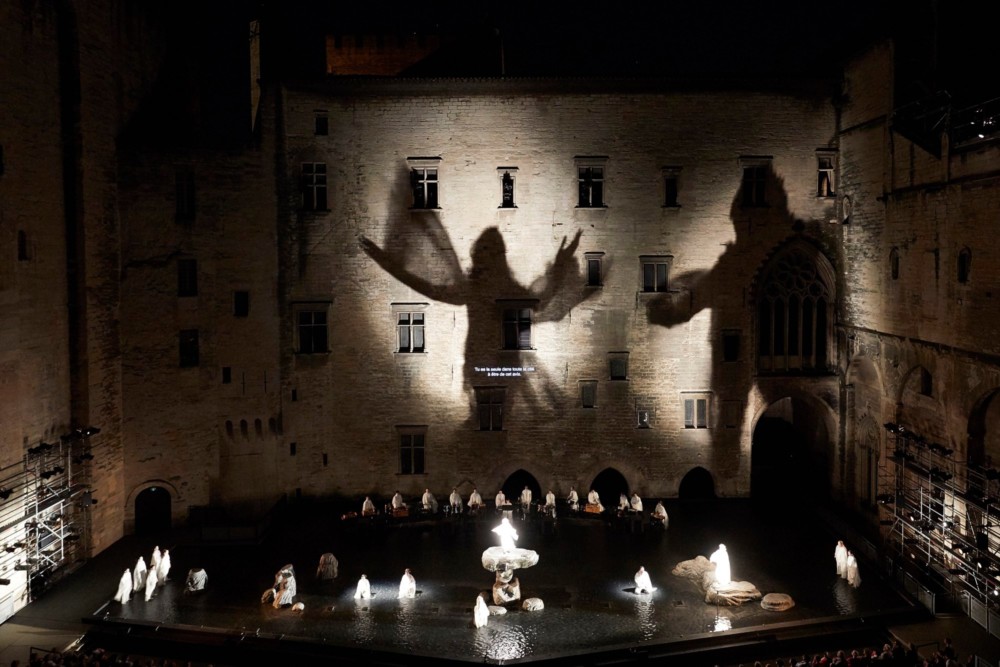
Antigone—yes, it’s the Sophoclean Greek drama you slogged through in high school or college—is a simple, straightforward tragedy. In this production we are given an amusing, shouted synopsis by the players prior to the performance itself. A nice touch, since it allows us to focus on the presentation rather than the content. At some point I think most audience members even gave up on reading the English supertitles (the performance is in Japanese, from a translation by Shigetake Yaginuma, and it somehow sounds even more poetic) and just concentrate on the spectacle. Two brothers, sons of Oedipus (you’ve heard of him, right?), Eteocles (Morimasas Takeishi) and Polyneices (Keita Mishima), have fought and killed one another in a civil war. Their uncle, Creon (Kazunori Abe, in a speaking role and Kouichi Otaka in the character’s movement role), the new king of Thebes, has declared Eteocles the honorable combatant who will receive an honorable burial; his invader brother, Polyneices, he declares, will be left to rot on the battlefield.
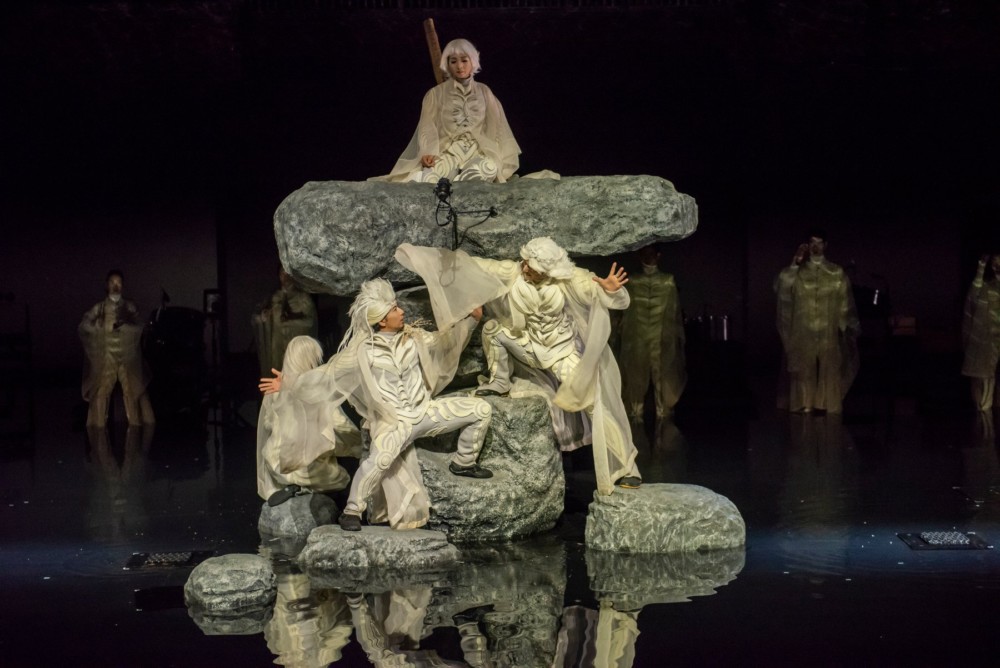
In a fascinating touch (as alluded to above in the mention of the actors playing Creon), in several roles there is one actor who performs a character’s speaking parts, while another performs their movements. Probably not a bad idea (though not likely the reason) since there’s a lot of water to navigate. Antigone—who has decided that blood is thicker than politics and regal edict and endeavors to honorably bury her uncle Polyneices—is perfectly played in both roles, with Micari in the movement role and Maki Honda as the speaker, elicits heartfelt pain when she is condemned to die in a cave for her actions. Her sister Ismene (beautifully played by both speaker Yuumi Sakakibara and mover Asuka Fuse) tries to take the blame for Antigone’s actions, so into the cave she goes as well. The tragedy is perfectly rounded out when Creon ignores a blind profit’s bidding to back off, and he subsequently loses both his son, Haemon, and wife, Eurydice, to suicide.
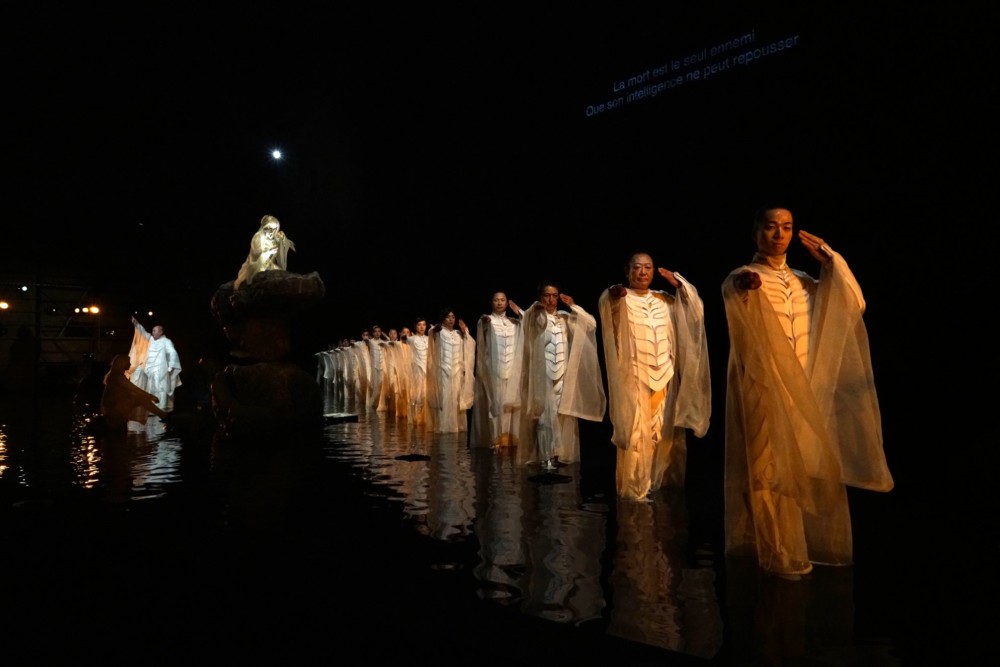
The story, however, in this case is merely a wooden frame on which to hang a gorgeous, operatic production. Where does one begin? Merely walking into the theater space, facing the back of an enormous set of bleachers. The ceiling of the Wade Thomson Drill Hall is so enormously cavernous that it almost feels like one has entered a forest upon seeing the enormous lake (or pond, perhaps?) that makes up the entire stage (Junpei Kiz’s utterly remarkable “space design”). Actors draped in white form-fitting costumes (Kayo Takahashi) with flowing robes that feel both ancient and sci fi (think Tron, the movie), walk ever so slowly, slogging through the water, holding glass encased candles. Large shadows, from footlights (lighting by Koji Osako) lining the auditorium’s foreboding brick walls, reach several stories high, creating haunting, gigantic figures one the back of the stage, which become more ominous throughout the play.

Perfectly directed (no easy feat, considering the nearly 40 actors that grace the performance) by Satoshi Miyagi, the production is a sonic and visual wonder. The back of the stage is lined with nearly 20 percussionists whose sound fills the space so thoroughly that it takes up all the space inside your own body. Some of Hioko Tanakawa’s compositions are stirring and powerfully dramatic, while others are as quiet as the water is still. The production feels at times like an out-of-body experience. Should you nod off momentarily in the stillness and darkness, you’d not be able tell upon awakening whether or not you were dreaming. Either way, the experience is simply exhilarating, one for the ages. It’s a shame it can’t be seen by every theater lover in the city.
Antigone. Ran from September 26 to October 6 at the Park Avenue Armory (643 Park Avenue, between East 66th and 67th Streets). One hour 45 minutes, no intermission. www.armoryonpark.org
Photos: Stephanie Berger


